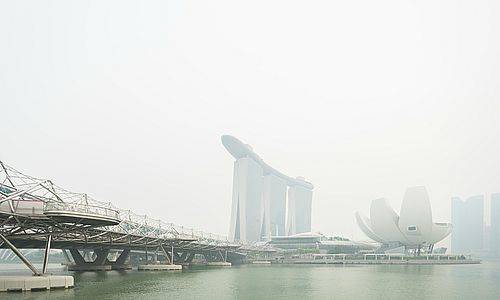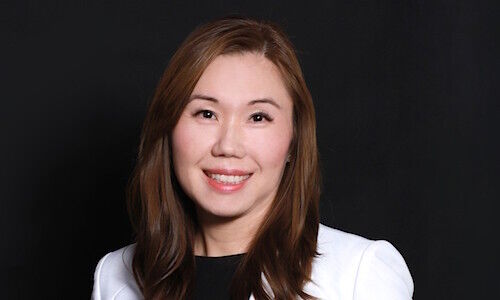Singapore: Overwhelming Vote for Status Quo
Voters in Singapore have expressed their support for the existing political system – much maligned in the west – to a degree unexpected before the elections. The political stability is a blessing for the financial industry and Swiss banks doing business in the city state.
The fog wafting (picture above) through Singapore these days, a result of the illegal destruction of the rainforest in Indonesia, lends a stark contrast to the political and economic future of the tropical city state, which has hardly ever been as clear cut.
After a short and passionate election campaign, voters overwhelmingly awarded their support to the governing People's Action Party (PAP) for a further four-year period. The party of Prime Minister Lee Hsien Loong (picture below) received almost 70 percent of votes, giving it 83 out of a total 89 seats in parliament. That's one more than in 2011, when the party took 61 percent of votes.
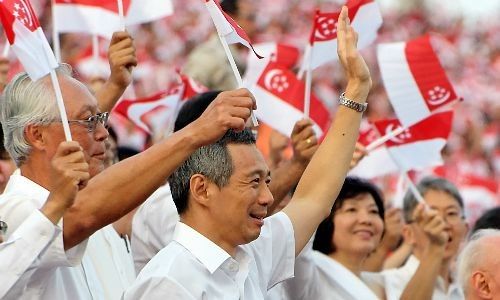
Continuity in Prosperity
The victory of PAP is an important signal for the continuity and prosperity of the financial market in Singapore, not least because many (Swiss) banks are using it as hub for their expansion strategies in Asia.
UBS, Credit Suisse and Julius Bär are among the largest players in the region, measured by their assets under management. Numerous other Swiss institutes have also built up substantial capacities in Singapore.
PAP is fundamentally pro-banking. Lee Kuan Yew, the founder of Singapore and father of current prime minister, recognized the economic and strategic value of a financial market and in the 1970's put the required foundations in place. Lee Kuan Yew died in March.
Swiss Banking Point of Reference
The Swiss banking industry served as point of reference, in questions of law, regulation, supervision, banking secrecy and organisation. Which partly explains why the big Swiss banks were able to play such an important role in Singapore from early on, as finews.ch repeatedly reported.
The stability, which has been affirmed for the foreseeable future is also of importance for banking because the wider Asian region is riddled with uncertainties: the recent turmoil on the exchange in China puts in question growth expectations in that country; a corruption scandal in Malaysia, engulfing the prime minister, affects Singapore's neighbor greatly (as reported by finews.ch); and the automatic exchange of information, which Singapore promised to introduce in 2018, might yet pose major challenges to some financial institutes.
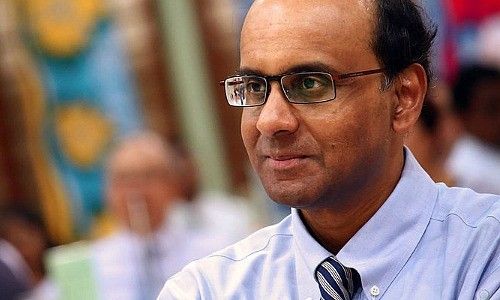
Surprise for Observers
The leadership by an experienced team provides the financial market with reliable conditions, enabling not least the foreign banks to build on their growth strategies. Finance Minister and second-in-command Tharman Shanmugaratnam (picture) is playing an important role in this respect, recognizing the importance of the financial market – and not least the Swiss banks – as finews.ch previously reported.
Even long-time observers of Singapore's politics were taken aback by by the outcome of the elections. PAP, in charge since the founding of Singapore 50 years ago, suffered setbacks in the elections of 2006 and 2011. The assumption was that the opposition, in the times of social media, would make further inroads into the vote of PAP. As it seems the opposition wasn't able to present enough trustworthy candidates.
Slowing Growth
A number of issues would been available for voter discontent. The rate of economic growth has slowed from a previous 7 percent to today's 2 percent. Issues such as immigration, provisions for the elderly and housing might also have served as reasons for a rethink among the electorate.
It wasn't to be. Quite to the contrary, the result is a clear mandate for the ruling elite, which to this day is in directly lineage to the founding father of the nation and keeps its hands on the levers of power in the economy as well.
This monopoly of the few in the past led to dictatorial tendencies in Singapore. In the sixties, seventies and eighties, hundreds of critical citizens were incarcerated or forced to emigrate. There was never a free press in Singapore. It is no surprise therefore that many western states virulently critized Singapore's politics.
Unrivaled Economic Development
This criticism tends to ignore the unrivaled development over the past half century of the city state, a development from an emerging country to one of the richest places on earth. The population has profited from the ensuing wealth and progress. It is not possible to answer the question how well Singapore would have developed if the opposition would have been free.
Singapore's development since 1965 and this weekend's vote owe a lot to one person: Lee Kuan Yew. The founding father of Singapore managed to make the city state an (economic) success story with his unrelenting and autocratic policies.
Conscience of the Nation
It was somewhat tragic that the founder of Singapore died only a few months before the 50th birthday of the state, aged 91. Even after giving up his political mandates years ago, which might have helped the opposition to thrive since the 1990s, he remained the conscience of the nation.
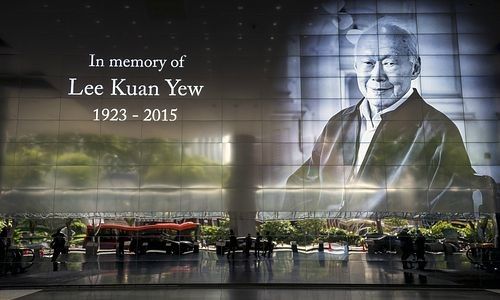
This became evident in March as hundreds of thousands of citizens stood in pouring rain for hours to pay respect after the death of their regent (picture). The sense of togetherness was fostered during the festivities celebrating the 50th birthday of Singapore and at the national day, which followed shortly after. It might have contributed to voters giving support to PAP.
Greatly Important to Banks
The success of the past fifty years, the uncertainty in surrounding countries, the failure of the opposition to come up with convincing candidates, coupled with the enormous popularity of incumbent Prime Minister Lee Hsien Loong, combined to guarantee an overwhelming victory for the governing party.
A victory that is of great importance for Swiss banks in Asia.
PS: The popular support should also help PAP to renew itself in the face of globalisation and an increase in information penetration through social media. PAP also needs to adapt its understanding of democracy to western standards. This includes they way it chooses a successor to Lee Hsien Loong, 63, who's ruled since 2004. Naming a successor from outside the ruling family would send a further and important signal.

